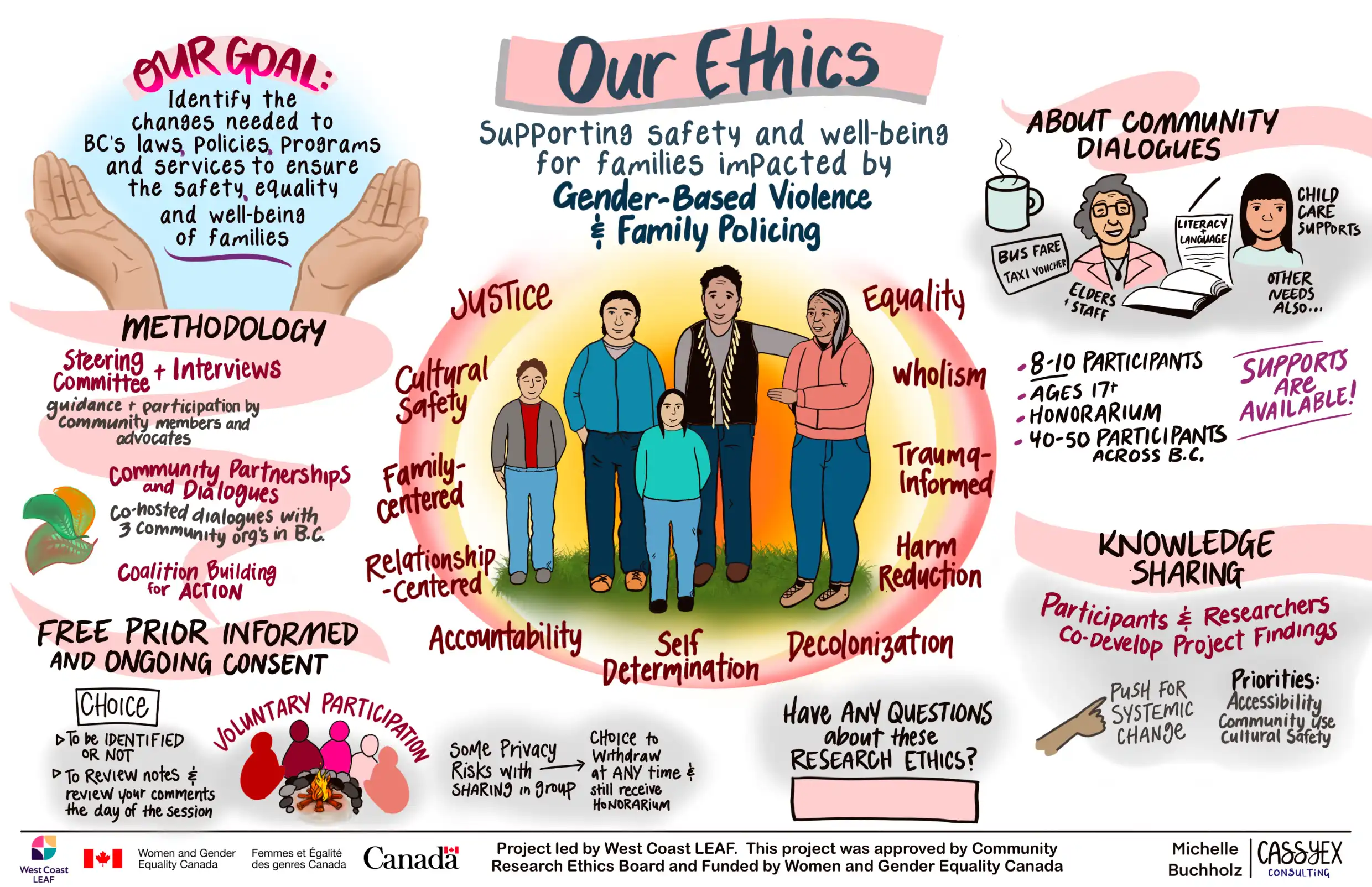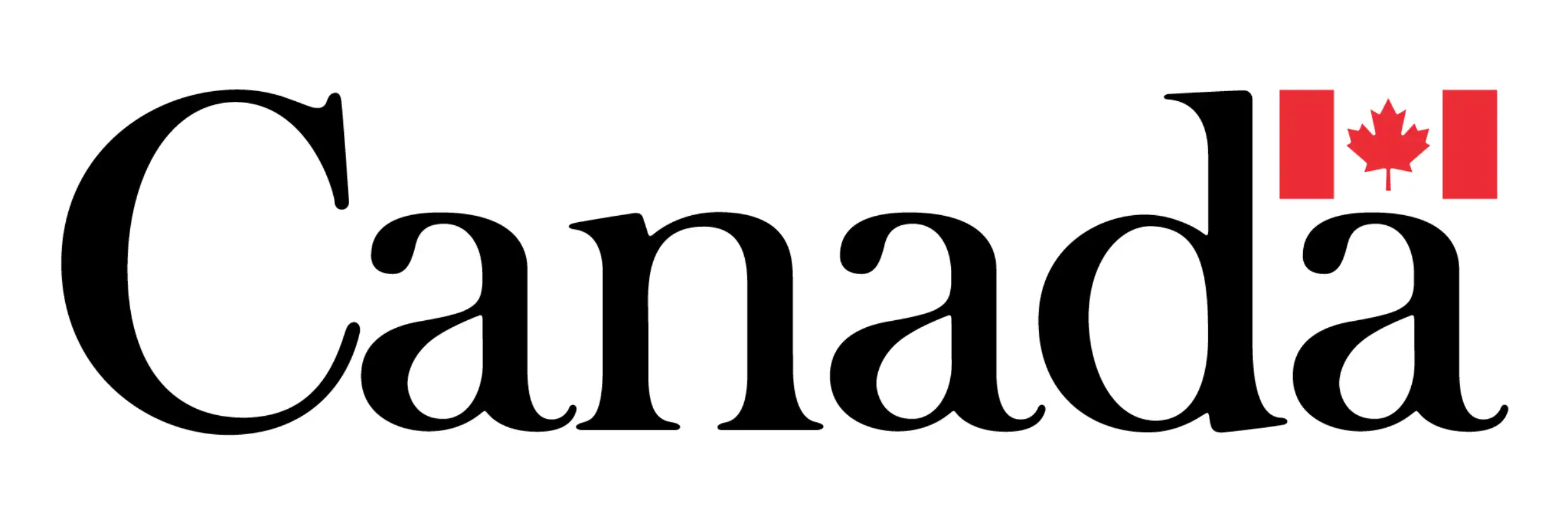
Re-envisioning family safety and well-being at the intersections of family policing and gender-based violence
About the project
Alongside families and advocates, this project will identify the changes needed to BC’s laws, policies, programs, and services to ensure the safety and well-being of families impacted by gender-based violence and family policing. This project will foreground the perspectives and expertise of Indigenous, racialized, migrant, and disabled women and people who are marginalized based on gender.
The project is guided by a steering committee of Family Well-being Coalition members.
The research methods include:
- Reviews of literature.
- Interviews with community members, advocates, and other experts.
- Co-hosted community dialogues with three partner organizations across so-called BC.
West Coast LEAF believes that everyone should be safe from violence, and that parents or caregivers and their kids should be supported to stay together safely. The goals of this project are:
- Learn how gender-based violence and encounters with BC’s family policing system can combine to increase risk of harm for people and families.
- Explore what services and supports would prevent or decrease the harmful impacts of gender-based violence and BC’s family policing system for people and families.
- Identify what changes to laws, policies, programs, and services are needed to improve the safety and wellbeing of people and families.
- Push for changes by sharing research findings with participants, communities, the public, and advocates.
Project ethics
The project is rooted in the Family Well-being Coalition’s values of equality, justice, accountability, decolonization, wholism, trauma-informed approaches, family- and relationship-centerdness, cultural safety, harm reduction, and self-determination. It has been approved by the Community Research Ethics Office.

See image description for full alt text.
Download Project Ethics as PDF.
Get in touch
For questions, please get in touch with Sharnelle Jenkins-Thompson, Manager of Community Outreach at community@westcoastleaf.org.
Acknowledgements
Our sincere thanks to all those who contributed to the development of this report. This project is made possible by generous funding from Women and Gender Equality Canada (WAGE).


Take action for justice and equity!
